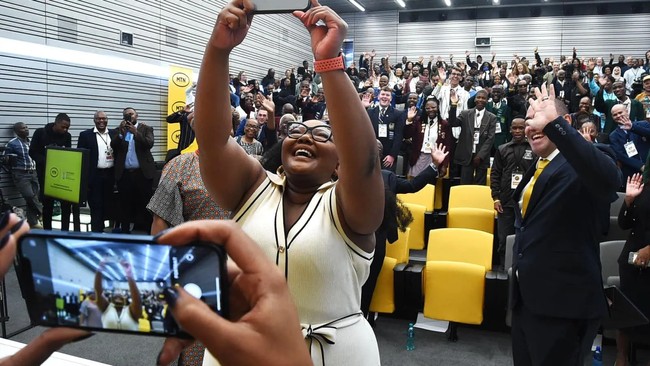As the deadline for remarking approaches, students across South Africa must act swiftly if they wish to challenge their 2024 matric results. This crucial opportunity allows candidates to ensure the fairness and accuracy of their academic records, a process vital to securing future opportunities. With the stakes so high, students and their families must carefully weigh the risks and benefits of remarking their results.
Both full-time and part-time candidates are eligible to apply for re-marking, re-checking, or script watching, with fees set at R120 for a re-mark, R30 for a re-check, and R230 for script watching. These initiatives reflect the Department of Basic Education’s (DBE) commitment to maintaining the integrity of the results and ensuring students have the chance to correct any potential errors. For many, a successful remark could unlock opportunities for tertiary education, scholarships, and future careers, but there are also significant risks involved. A lower grade after a re-evaluation, though uncommon, is a possibility. Additionally, the financial cost, while manageable for some, may present a barrier for families struggling with economic challenges.
Minister Siviwe Gwarube recently emphasized the importance of this process, noting that the re-marking initiative is one of the DBE’s primary tools for ensuring fairness in the education system. “The re-marking process is one of our key mechanisms to uphold the fairness of our system and give every learner a fair shot,” Gwarube stated. However, with results from the re-marking process not available until March 7, students face the anxiety of delays, especially when it comes to securing places at universities or other institutions for further study.
While the matric class of 2024 celebrates a record-breaking pass rate of 87.3%, education experts urge caution when comparing these results to those of previous years. While the pass rates have steadily increased in recent years—82.9% in 2023 and 80.1% in 2022—many factors influence these numbers beyond just improved teaching methods. The cohort of 2024, in particular, has faced unique challenges, including disruptions caused by the COVID-19 pandemic. Students who started Grade 8 in 2020 experienced prolonged school closures, limited access to remote learning, and significant learning losses during those formative years.

Despite these challenges, the results for 2024 suggest resilience, with many students demonstrating outstanding achievements. Minister Gwarube acknowledged the hardships the class of 2024 overcame, saying, “The Class of 2024 reflects resilience, having started Grade 8 in 2020 during the height of the COVID-19 pandemic.” This cohort’s success also benefited from systemic interventions such as the Second Chance Matric Programme, expanded teacher training, and increased focus on education quality.
Yet, despite these successes, the country’s education system continues to grapple with deep-rooted inequalities. While the DBE has celebrated the fact that 67% of Bachelor passes came from schools in Quintiles 1 to 3, the gap between affluent and disadvantaged schools remains significant. Wealthier schools in Quintiles 4 and 5 continue to enjoy better resources, smaller class sizes, and greater access to technology, which directly impacts the quality of education students receive. The discrepancy between provinces is equally concerning, with urban regions such as Gauteng and KwaZulu-Natal outperforming rural areas like Mpumalanga and Limpopo in terms of Bachelor passes and distinctions.
Moreover, the pass rates for key subjects such as mathematics and physical science highlight both progress and lingering challenges. The pass rate for mathematics, for example, improved to 69.1%, a promising rise from 63.5% in 2023. However, the slight decline in the physical sciences pass rate to 75.6% has raised questions about the consistency of support for these critical subjects. Education analysts have stressed the need for a more holistic, long-term approach to strengthening the teaching of math and science, key areas that are crucial for producing the engineers, doctors, and scientists of the future.
While there is much to celebrate about the 2024 matric results, the process has not been without its controversies. One of the most pressing issues has been the alleged leak of results by a company named Edumarks, which reportedly sold access to students’ results prior to the official release date. This breach of procedure has raised concerns about the integrity of the process and potential violations of the Protection of Personal Information Act (POPIA). Minister Gwarube has assured the public that investigations are underway and that steps will be taken to ensure the integrity of the results is upheld.
Another ongoing debate surrounds the publication of matric results in newspapers. While the Information Regulator had sought to prevent this practice due to privacy concerns, the courts ruled in favor of the DBE, allowing results to be published. This decision reflects a wider tension between public access and privacy in an era where digital platforms have changed how we share information.
Despite the controversies and challenges, the 2024 matric results are a testament to the resilience of South Africa’s students. They also highlight the ongoing need for reform in the education system to ensure equitable access to quality education for all learners, regardless of their background. Education activist Hendrick Makaneta captured this sentiment perfectly, stating: “The 2024 matric results are a victory, but they must not lull us into complacency. We must double down on efforts to make quality education a reality for all South Africans.”
As students now consider whether to apply for re-marking, enter rewrite programs, or move forward with plans for higher education, the emphasis must remain on addressing the systemic issues that continue to hinder too many students from realizing their full potential. The class of 2024 has set a new standard for excellence, but it is only through sustained effort and investment that we can truly create an educational system that serves all learners equitably. The road ahead may be challenging, but the success of this cohort provides a hopeful foundation on which to build.
